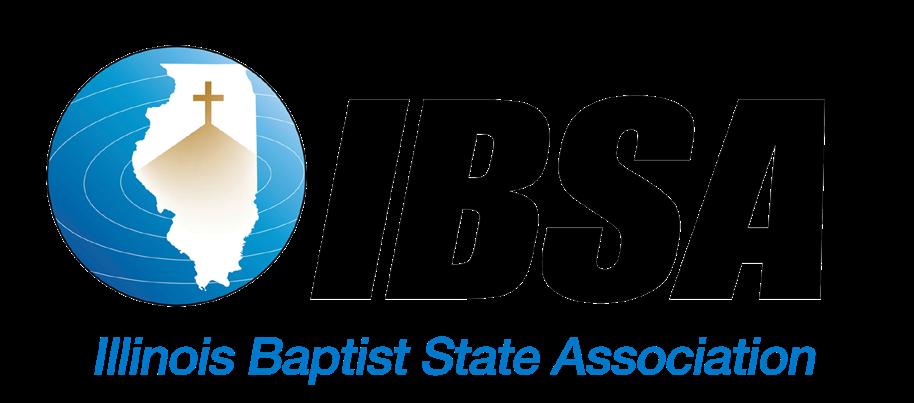

Child Protection
Creating safe environments
How to make safety and security policies for your church
Creating the framework


3085 Stevenson Drive Springfield, Illinois 62703 | IBSA.org
Creating written policies is an extremely important part of developing a safe and secure environment for children and youth at your church. Policies should be developed by a team at your church who can assist with training and enforcement. Church leaders to consider as part of the development team are the pastor or a ministry leader, parents, teachers, deacons or other church leadership team members.
This framework is designed to help you and your team ask questions and seek clarity about the necessary “whys” and “whats” of your policy. Carefully working through each step of this framework will make your policy relevant to your ministry setting and more likely to be followed and enforced.
Many steps in the framework include questions along with possible responses to help guide your thoughts and decision-making. Some of the policy points should be non-negotiable and included in every policy, while other policy points are optional based on the perceived needs of your church.
A word of caution — never take a blank policy or the policy developed by another church and merely add your church’s name to the document. Carefully consider and develop a unique document for your church. Policy development takes time. The work that goes into developing a policy will reinforce the points of your policy and facilitate adherence to the policy in your church.
Step 1: Purpose Statement
What is the overall purpose of children’s ministry and/or youth ministry and the need for a safety and security policy? Why do we feel the need for a written policy?
This purpose statement can take the form of either a letter from your pastor or ministry leader about the purpose of children’s or youth ministry and for the policy, or it may be a brief paragraph that outlines the purpose of the document.
Step 2: Define terms
How will our church define the following?
Child:
Youth:
Adult:
Paid Staff:
Volunteer:
Approved Worker:
Vulnerable individual with special needs (if applicable):
Step 3: Steps to be an “approved worker”
A. Completion of application to serve, including permission to conduct criminal background check.
B. Interview with designated leader
C. Reference checks (Consider who should be included in providing references: family, individuals outside of the church setting, fellow church members, length of time someone has known applicant, etc.)
D. Completion of safety training.
Step 4: Mandatory points for inclusion in your policy
A. Two-adult rule: There should always be at least two adults over the age of 18 serving in every classroom, regardless of the number of children. If only two adults are present, they should not be related by marriage. If a couple is serving, another adult over the age of 18 should also be present in the room.
●Rationale: In the event an allegation of abuse leads to a criminal trial, husbands and wives cannot be coerced to testify against each other in court.
●Discuss what steps your church will take or require to ensure an adult is never alone with a child. Should you include any of these steps in your written policy?
●In the event an emergency leaves only one adult in the room, what steps are required to ensure a safe and secure teaching environment? (Possible responses: require door to remain open; notify director of situation; ask floater to occasionally check room.)
B. Six-month rule: No one should be allowed to serve in children’s ministry until they have been a member for at least six months or an active attender for at least one year.
C. Approved worker status: Successful completion of all steps to become an approved worker (see Step 3).
D. Clear sightlines into each classroom in the church.
●Are there clear sightlines into every room of our church?
●Should there be a requirement that these sightlines are to be left / unobstructed for outside viewing?
●Do we need to budget for adding windows in our classroom doors?
E. Check-in and release procedures.
●What is our required check-in and release procedure?
●What are the ages of the children who will be required to check-in and be released to a parent or guardian with approved tag, badge or sticker?
●Is there a procedure for parents who lose their release tag, badge or sticker?
●What is the procedure for someone coming to pick up a child without the required tag, badge or sticker?
●Will there be an age restriction on who may pick up a child?
●Are there other non-negotiables your church will add to this list?
Step 5: Optional points to consider for inclusion in your policy
Following is a comprehensive list of points to consider for inclusion in your policy. Only include points that are applicable to your ministry setting and that you feel will be enforceable.
Bathroom and Diapering Procedures
●Will there be a gender restriction on assisting children toileting needs?
●Will there be a gender restriction on who may diaper a child?
●Will there be an age restriction for assisting children with toileting needs?
Suggested policy is no one under the age of 18 should ever assist with diapering/toileting or escorting a child to the bathroom.
●What procedure will our volunteers follow when assisting children in the bathroom?
Often this answer depends on whether or not a church has bathrooms in the classroom or if a volunteer must escort a child to a bathroom in a hallway or other part of the church.
Points to consider including in your policy are that no adult may be alone with a child or children in a bathroom that has the outside door or stall door closed. If escorting a child to a hall bathroom, the adult should check the bathroom first before allowing a child to enter. Another adult should be in view of the adult attending the child. If a child needs assistance, notify another adult before entering the bathroom. Consider having designated bathrooms for “children only” in your children’s ministry area.
Bites and injury reporting
●To whom should reports of bites or injuries be made?
●Is there a form to be completed that will document a bite or injury?
Appropriate discipline
●What are appropriate and inappropriate forms of discipline?
Appropriate forms of discipline: redirection; praise; natural consequences; age-appropriate time out in the classroom; contacting director; contacting parent.
Inappropriate forms of discipline: shaming; yelling; blaming; “silent treatment;” hitting; biting.
●Are there other forms of discipline both acceptable and unacceptable that your policy will specify?
Appropriate touch (optional, but recommended)
Appropriate: high-fives; fist bumps; shoulder touches; side hugs; hand shakes.
Inappropriate: frontal hugs; men holding children on laps; kissing on face or lips.
Are there other forms of touch that your policy will specify?
Suggested:
Contagious illnesses that will exclude a child from attending
Green discharge from nose or eyes
Fever in last 24 hours
Vomiting or diarrhea in last 24 hours
Severe coughing
Pink eye
Lice
Strep throat
Impetigo
Suggested:

Teaching ratios
Administration of medicine
Suggested policy is that no volunteer or staff member administer medicine to a child, including diaper rash cream or other ointments.
Photo, video and social media policy
Suggested policy is that no photography or video of children be taken or posted on the church’s website or social media without parent’s written approval. In Illinois, it is against the law to post pictures of children in foster care.
For a sample social media consent form, go to IBSA.org/Protect.
Overnight trips
What will be our policy for assigning rooms?
Suggested policy is no adults sleep in the same bed as a minor or adults stay in an adjacent/nearby room where minors sleep.
Communication between leaders/volunteers and children
Suggested policy is no private electronic communication (e-mail, social media, texting, etc.) should take place with a child at any time.
Steps for dealing with non-compliance to policy
What steps will leaders take if a volunteer/paid staff fail to adhere to or enforce written policies on a consistent basis?
Age restrictions for youth volunteers
Suggested policy is no one under age 18 serve with children ages birth through age 2. There should be at least five years’ age difference between youth volunteers and the age group with whom they volunteer.
Emergency evacuation plans
A plan should be created and explained clearly to volunteers, parents and the security team so that parents know where to pick up children in the event of an emergency without causing additional congestion inside children’s areas.
●Who will assist with evacuation in the event it is needed?
●What route should classes take?
●What are the procedures for ensuring that all children are evacuated and then released to the appropriate parent/guardian?
Drivers
●Who is allowed to transport children to official church events?
●Is there a requirement to conduct a driver’s license check before a driver is allowed to transport children/youth?
●Is there a policy for using church vehicles?
Use of facilities by outside groups
●Will outside groups be allowed to use children’s areas of church?
●Will outside groups be required to follow policy requirements of church?
Food allergies
●What are the requirements for bringing in outside food or drink beyond the food provided by the church?
Hot beverages
●Are teachers, volunteers, parents allowed to bring hot beverages or food into children’s areas?
Step 6: Mandatory reporting of suspected abuse in Illinois
●Illinois is a mandatory reporting state with no clergy exemption.
●Report must be made immediately if there is suspicion of abuse. Any delay causes liability for the individual if they are a mandated reporter and to the church as an entity.
●Create and use response team, and stress confidentiality.
●Offer a caring response, and take allegations seriously.
●If the allegation is of abuse by a volunteer or paid staff member, remove the accused from service until allegations are resolved.
●Document allegations and response of church.
●Contact insurance company within the first 24 hours of receiving report.
●Support victim with offer of professional counseling.
